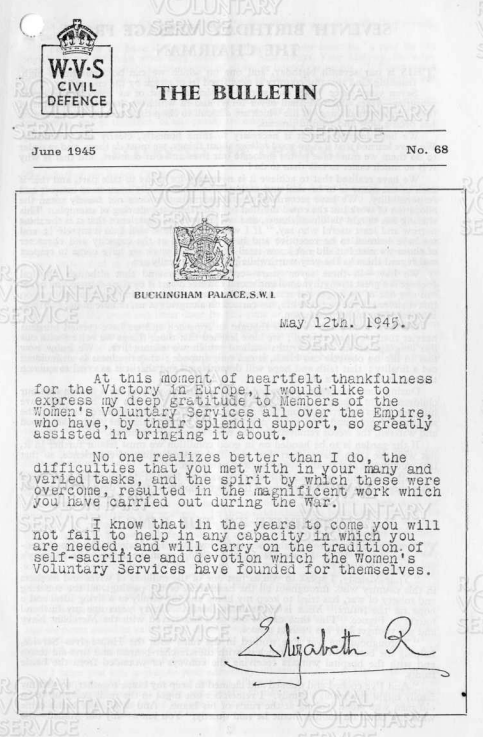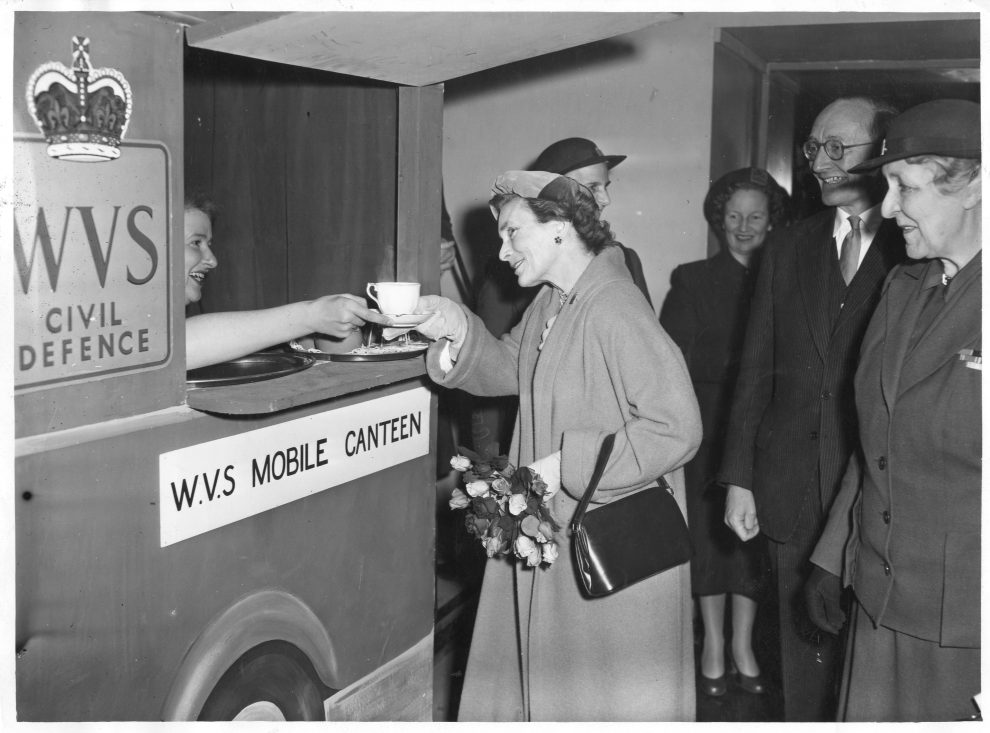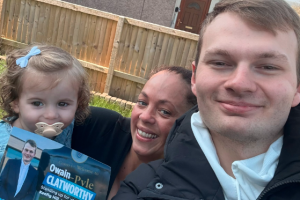ROYAL Voluntary Service is commemorating VE Day 80 by honouring the extraordinary women who helped the nation during World War II as members of the Women’s Voluntary Services (WVS).
The charity, founded in 1938 by Lady Stella Reading as the Women’s Voluntary Services (WVS), mobilised over one million women across Britain to support people during the war. These pioneers helped shape the wartime volunteering effort by providing emergency rest centres, feeding communities, offering first aid, assisting with the evacuation and billeting of children and supporting in almost every aspect of wartime life.
Royal Voluntary Service today continues to mobilise volunteers in all corners of Britain to support people in need and the NHS.
Catherine Johnstone CBE, Chief Executive of Royal Voluntary Service, said: “As we mark 80 years since VE Day, we remember with immense gratitude not only the bravery shown on the battlefield, but the unwavering strength and spirit of the extraordinary women who kept the country going on the Home Front, particularly the 245 members of WVS who were tragically killed.
“Their legacy lives on today on as does our commitment to mobilising volunteers to support communities up and down the country.“
Helping to celebrate the enduring legacy of WVS women is Royal Voluntary Service Ambassador, Elaine Paige OBE. Elaine, who has previously honoured the women of WVS in a photo tribute wearing the original volunteering uniform, continues to champion the work of modern-day volunteers in her role with the charity.
Through her support of Royal Voluntary Service, Elaine has seen first-hand the impact volunteers have had on individuals and communities alike.
Elaine Paige OBE, Ambassador of Royal Voluntary Service, said: “Wearing the WVS uniform carries the weight of a generation of women who stepped forward with courage, not knowing what tomorrow would bring. Every time I meet Royal Voluntary Service volunteers today, I see that same quiet strength.
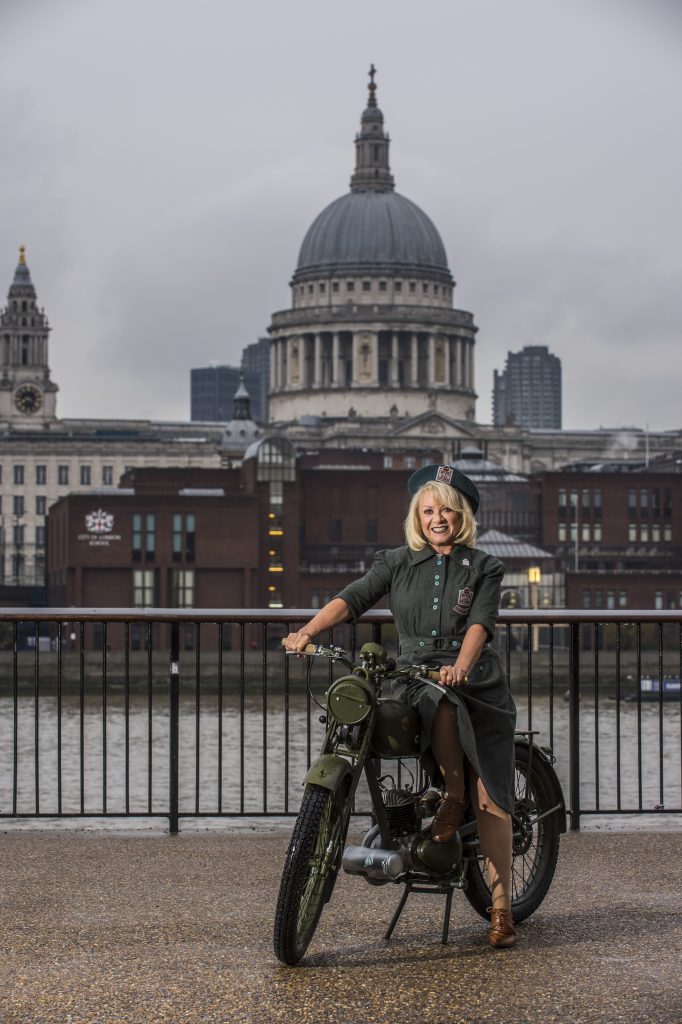
“I’m proud to support a charity that is carrying forward the legacy of the wartime generation, with its modern-day mission rooted in the values that inspired its wartime beginnings.”
To mark this significant anniversary, Royal Voluntary Service’s local services will be hosting VE Day events, bringing communities together to reflect, remember and celebrate the resilience of the wartime generation.
As part of the commemorations, Royal Voluntary Service is celebrating the often-overlooked contributions and stories of women on the Home Front from our archive materials.
Margaret Miller is one of these stories, a remarkable volunteer who joined WVS when war was declared in 1939: ”I had just come home from holiday and there was one of those big barrage balloons hanging.
”I said ‘What’s that?’ ‘Well,’ she said, ‘that’s to keep them from attacking us’, so I said, ‘Well maybe we better do something about it then’, and I decided to join WVS.”
Margaret began volunteering in Glasgow, where her local WVS group operated out of a school building. Their early mission was focused on emergency preparedness, where they created a store of everyday essentials – kitchenware, bedding, clothes – to support families who were bombed out of their homes.
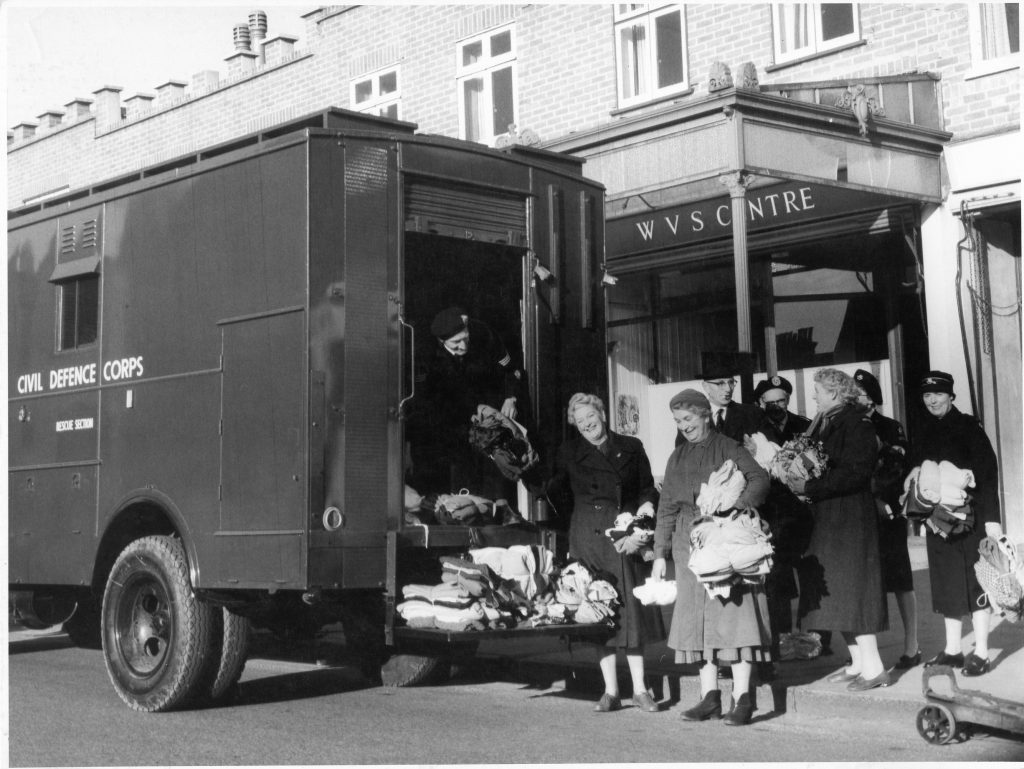
Margaret quickly found herself surrounded by like-minded people, and as the war progressed, so did Margaret’s role. She began visiting wounded soldiers in a small local hospital – many of whom were far from home and had no family nearby to visit them. She became a familiar, comforting face, bringing conversation, kindness, and the occasional rare treat.

In a time of strict rationing, even a chocolate biscuit was a luxury, but Margaret had the support of local shopkeepers – who would be persuaded to discreetly set aside small goodies for her to take to the soldiers. For Margaret, it wasn’t just giving the taste of a treat, it was giving a taste of care.
Volunteering during the war wasn’t about grand gestures for Margaret. It was about showing up, helping out, and bringing moments of comfort to people in dark times. And more than 80 years later, her legacy lives on in the same quiet, powerful spirit that continues to drive volunteers across Britain today.
Margaret’s daughter, Jean, continues her mother’s legacy, volunteering with Royal Voluntary Service. Jean runs Glasgow Lightburn Harmony Stroke Club, supporting people who have been sent home from hospital after having a stroke – with the same compassionate spirit as her mother before her.
As Britain braced for war, Georgie Harries also stepped forward and joined WVS to help with the effort.

Only a teenager at the time, Georgie felt a strange mix of fear and excitement – too young to fully understand the danger, but old enough to feel the gravity of the moment. Weymouth, the quiet seaside town where she lived, quickly became packed to the rafters with people from across the continent fleeing the horrors of war.
Wanting to be of help, Georgie joined the local WVS, rolling up her sleeves to support people however she could. Her duties varied – from helping to convert a once lively social hall into a dormitory for refugees and filling it with rows of makeshift beds for displaced families, to helping deliver a baby amidst the wartime chaos.
Georgie said: “The dance hall was turned into an enormous dormitory, and we were just generally being fairly useful… it was about being part of something, really.”
Volunteering made a lasting impression by the time the war had ended, and Georgie would continue to volunteer with WVS, supporting people and her local community however she could with initiatives like Meals on Wheels, and pushing snack trolleys around hospital wards. What started as a way of being part of something bigger during the war, turned into a lifetime of supporting others however she could.
In tribute to wartime volunteers like Margaret and Georgie, Royal Voluntary Service is offering a number of decommissioned WVS uniforms to help the stories live on. The uniforms are available to museums, heritage centres, schools, or other groups in the community, who are looking to share and preserve the legacy of these extraordinary women.
Uniforms are limited and donations will be made at Royal Voluntary Service’s discretion. Those who would like to be register their interest to receive a uniform donation must do so by emailing [email protected] before the end of May.
